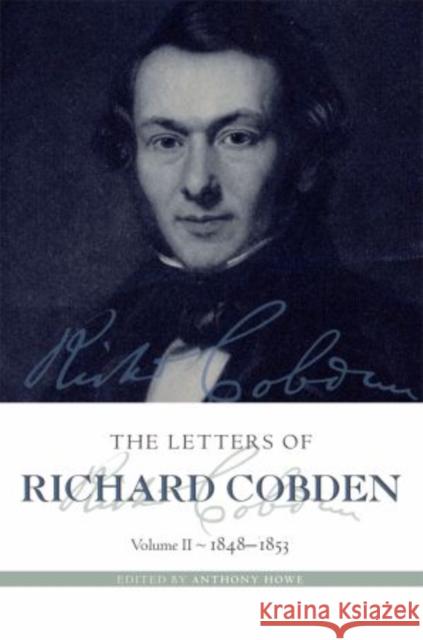The Letters of Richard Cobden: Volume II: 1848-1853 » książka
The Letters of Richard Cobden: Volume II: 1848-1853
ISBN-13: 9780199211968 / Angielski / Twarda / 2010 / 650 str.
The Letters of Richard Cobden (1804-65) aims in four printed volumes to provide the first critical edition of Cobden's letters, publishing the complete text in as near the original form as possible, accompanied by full scholarly apparatus, together with an introduction to each volume re-assessing Cobden's importance in their light. As a whole these volumes will make available a unique source of the understanding of British liberalism in its European and international contexts, throwing new light on issues such as the repeal of the Corn Laws, British radical movements, the Crimean War, the Indian Mutiny, Anglo-French relations, and the American Civil War.
The second volume, drawing on over fifty archives world-wide, follows the career of Richard Cobden from that of the 'Manchester Manufacturer' who had gained celebrity in the repeal of the Corn Laws in 1846 to that of the dominant Radical leader on the British political scene between 1848 and 1853, widely considered by contemporaries equal in importance to the leaders of the Whig and Conservative parties. Cobden in this period was concerned with an inter-connected series of movements which sought in different ways to reduce aristocratic power in Victorian Britain. These included the reform of parliament (especially through the secret ballot), of landownership, of government finances, of the British empire, as well as the introduction of state education. At the same time we see the emergence of Cobden "the International Man," with a cosmopolitan following, playing a pivotal role in the global peace movement, and articulating a wide-ranging critique of British foreign policy, with regard to the dangers of French invasion, the aftermath of the Revolutions of 1848, British expansionism in India, and the ramifications of the Eastern Question as Britain drifted towards war in the Crimea. Although in his own day, Cobden's radical ideas increasingly separated him from many contemporaries, in the longer term they became a vital tributary of nineteenth-century British and international liberalism.











